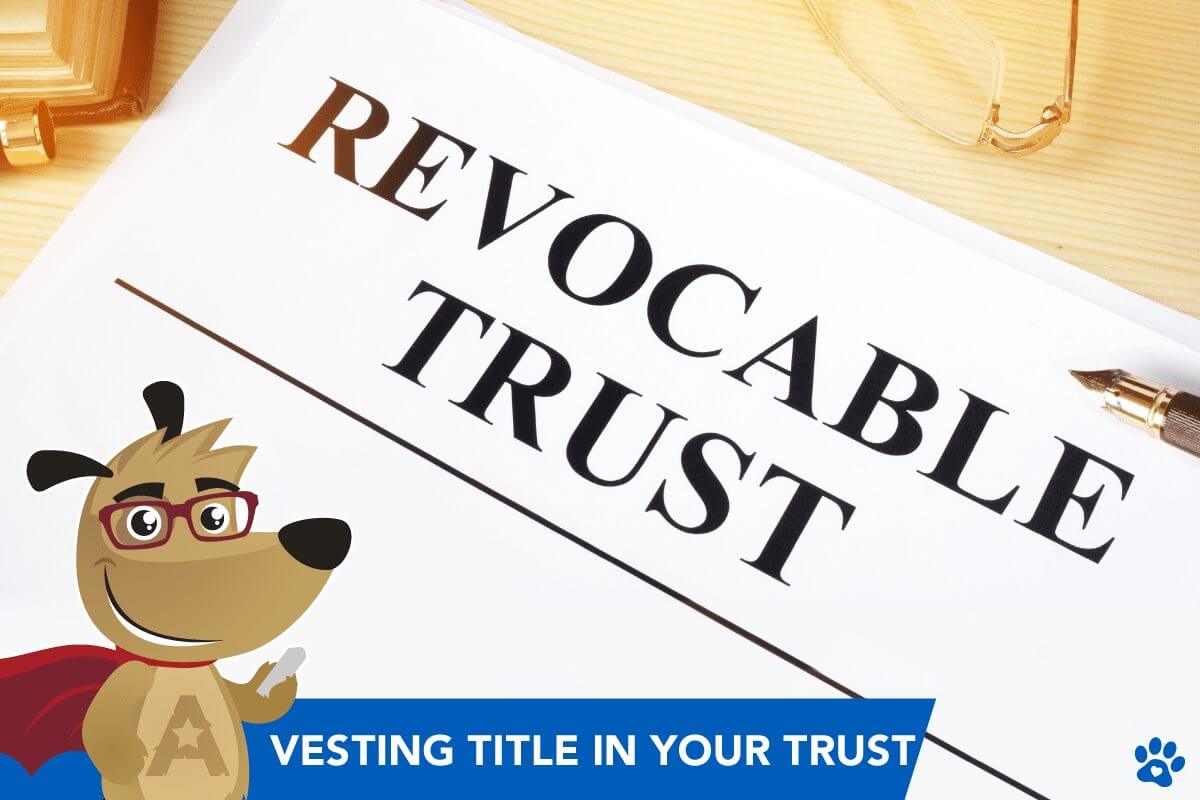Understanding the Effects of Trusts and Reverse Mortgages
 |
Michael G. Branson, CEO of All Reverse Mortgage, Inc., and moderator of ARLO™, has 45 years of experience in the mortgage banking industry. He has devoted the past 20 years to reverse mortgages exclusively. (License: NMLS# 14040) |
 |
All Reverse Mortgage's editing process includes rigorous fact-checking led by industry experts to ensure all content is accurate and current. This article has been reviewed, edited, and fact-checked by Cliff Auerswald, President and co-creator of ARLO™. (License: NMLS# 14041) |
I have the home in a family trust. I am unmarried but have lived with my “wife” for years. She inherits the home by last will. Do we qualify for a reverse mortgage?
The short answer is yes. You can have your home in a family trust with a reverse mortgage. Firstly, as a lender, we only get so much information. Then, we rely on the title and affidavits we receive when originating the loan.
For example, we would do a title search and see that the current title is in the name of your trust, and we would get a copy of that trust. We would have a copy of your application stating you were unmarried.

Including Your Partner in a Reverse Mortgage
With reverse mortgages, there are forms that adult property occupants must sign stating that they have no ownership interest in the home and are aware of the transaction. With that documentation, there is no problem doing a reverse mortgage loan for someone with your circumstances.
Who inherits the house is of no consequence in making the loan. If she has a current ownership interest, she would have to be considered in the loan, and the title would have to reflect her interest.
Suppose you want her also to be included in the loan. As long as she is 62 or older, you can change the title to include her, and she can also be included on the reverse mortgage, even though she is not married to you.
If she is not yet 62, she cannot be a non-borrowing spouse because she does not meet the qualifications (under 62 but married to the reverse mortgage borrower when the loan originated).
Under the parameters you have described, you could obtain the loan in your name alone at this time since you are not married. You get sole ownership of the property, and nothing would prevent her from inheriting the home after you pass.
IF MY SPOUSE IS NOT ON TITLE, WILL SHE BE UNABLE TO STAY IN OUR HOME AFTER MY DEATH?
Trusts & Non-Borrowing Spouses
Unless she is on the title or is a bona fide non-borrowing spouse, the loan becomes due when the last borrower or non-borrowing spouse at the time the loan is obtained permanently leaves home.
Under your scenario, she owns the home when you find it to her, and nothing says she has to leave the property. Still, if she does not have the money to repay the obligation, she would have to sell the home to pay off the loan if she was not on the title when the loan was taken and was not a non-borrowing spouse time.
We constantly coach borrowers to understand the options before they close the loan, not after the time comes when a loved one has passed, and now they have to scramble.
Your proactive research will help you greatly so that your significant other is not trying to figure this all out at a time in her life when things are difficult enough.
As you stated, the options are to be 62 or over and on the title when the loan closes, be a non-borrowing spouse, or make other arrangements in advance if you want to proceed with the reverse mortgage.
Some of the other arrangements that non-borrowing spouses have told us about in the past include a life insurance policy in place to pay off the mortgage at the passing of the older spouse, a second home owned by the couple that the non-borrowing spouse intended to move to at that time or family that the non-borrowing spouse had plans to move in with or closer to upon the passing of the older spouse and plans to sell the home at that time anyway.
Absent a clear plan in advance, finding out after a loved one has passed that you now have an obligation that must be repaid with no means to repay it, forcing a move is a terrible way to proceed.
You need to decide now if you want to take the steps outlined above to protect your significant other so that she can remain in the home if that is your and her desire or determine that the reverse mortgage does not fit with your plans.
Trust FAQs
Can I put my reverse mortgage in a trust?
Yes. HUD allows borrowers to place their reverse mortgages into approved trusts, and fortunately, most trusts written these days comply with HUD requirements. However, you want to ensure that your trust meets the HUD requirements before you change the title. For this reason, I always advise borrowers to send their trust to the lender/servicer for approval before you record the Deed transferring title to the trust. If you transfer title to a trust that cannot be approved, it creates a default that is typically easy to cure (you would need to transfer title back out of the non-approved trust), but why take the chance? It’s very easy to send the trust to the servicing department, let them review it for compliance, and then transfer the title to the trust after you get the approval. Do not take any chances. If you need an amendment to the trust in order for it to meet HUD requirements, it is easy for your attorney to take care of it, and you would not need to keep re-recording documents, saving yourself time and money as well.
What are my options if my trust fails to meet the guidelines to obtain a reverse mortgage?
Can a property be taken out of trust before or after I obtain a reverse mortgage?
Can I amend my trust after I get a reverse mortgage?
Can I obtain a reverse mortgage if I am a successor beneficiary of a trust?
ARLO recommends these helpful resources:




 Michael G. Branson
Michael G. Branson Cliff Auerswald
Cliff Auerswald

January 24th, 2025
February 11th, 2025
Pay off the loan using available funds.Refinance the loan into a traditional mortgage.Sell the home to repay the loan.
If none of these options are taken, the lender will initiate foreclosure proceedings to recover the loan balance. Unfortunately, the reverse mortgage cannot simply remain in place for the beneficiaries to continue living in the home without repayment.December 13th, 2024
December 13th, 2024
August 31st, 2024
August 31st, 2024
August 6th, 2024
August 6th, 2024
October 11th, 2023
October 11th, 2023
September 29th, 2023
September 29th, 2023
September 20th, 2023
September 20th, 2023
September 9th, 2023
September 9th, 2023
July 20th, 2023
July 20th, 2023
June 17th, 2023
June 17th, 2023
June 1st, 2023
June 1st, 2023
April 21st, 2023
April 21st, 2023
March 29th, 2023
March 29th, 2023
March 14th, 2023
March 14th, 2023
February 14th, 2023
February 14th, 2023
January 31st, 2023
January 31st, 2023
January 19th, 2023
January 19th, 2023
December 30th, 2022
December 31st, 2022
December 7th, 2022
December 7th, 2022
November 14th, 2022
November 14th, 2022
October 20th, 2022
October 20th, 2022
September 30th, 2022
September 30th, 2022
September 1st, 2022
September 1st, 2022
July 21st, 2022
July 21st, 2022
June 13th, 2022
June 13th, 2022
May 23rd, 2022
May 23rd, 2022
March 22nd, 2022
March 22nd, 2022
February 16th, 2022
February 16th, 2022
August 9th, 2021
August 9th, 2021
August 10th, 2021
August 7th, 2021
June 29th, 2021
June 29th, 2021
June 2nd, 2021
June 2nd, 2021
January 20th, 2021
January 20th, 2021
December 28th, 2020
December 28th, 2020
December 8th, 2020
December 8th, 2020
October 1st, 2020
October 1st, 2020
September 22nd, 2020
September 22nd, 2020
September 20th, 2020
September 20th, 2020
February 6th, 2020
February 6th, 2020
November 25th, 2019
November 25th, 2019
November 13th, 2019
November 13th, 2019
September 23rd, 2019
September 23rd, 2019
September 4th, 2019
September 4th, 2019
August 23rd, 2019
August 23rd, 2019
July 21st, 2019
July 21st, 2019
July 15th, 2019
July 15th, 2019
June 10th, 2019
June 10th, 2019
May 1st, 2019
May 1st, 2019
April 25th, 2019
April 25th, 2019
March 26th, 2019
March 26th, 2019
December 6th, 2019
December 14th, 2019